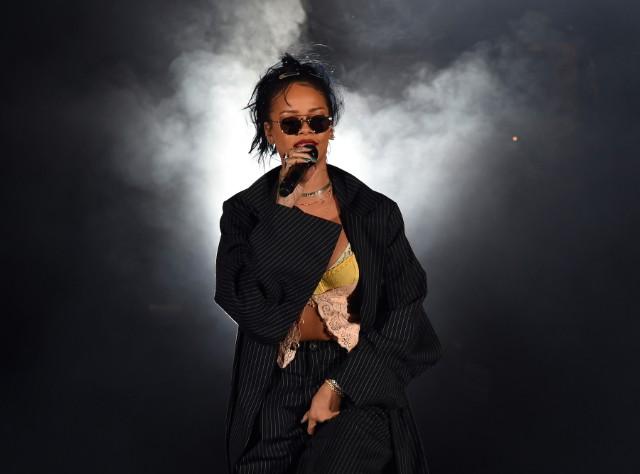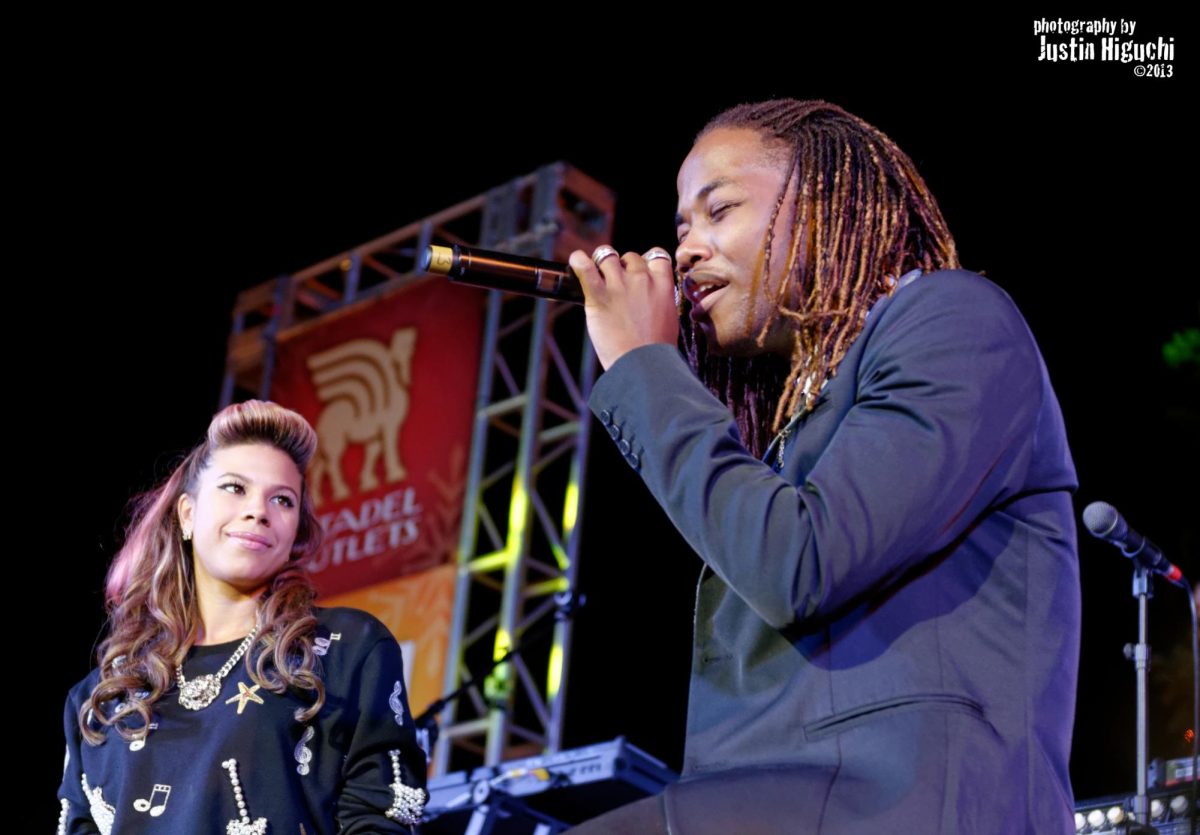One can easily trace the progression of Rihanna’s style in the music world with a little digging and a long day spent on Spotify going through all of her albums. Rihanna’s debut album “Music of the Sun,” Rihanna’s debut album was released almost eleven years ago, and it was a mostly well-confined pop album with a lukewarm reception by critics. Her second album, “A Girl Like Me” was a commercial success, with songs like “SOS” and “We Ride” that continue to bring back memories in our culture today. The arrival of Rihanna’s third album, “Good Girl Gone Bad” made a departure from her Caribbean-influenced previous work, with dance tracks helmed by notable producers such as Timbaland. This was also when Rihanna’s image ventured into edgier territory.
Rihanna’s shift in musical, as well as personal, style seemed to work well as the album was nominated for seven Grammys, winning one in the Best Rap/Sung Collaboration category for “Umbrella.” Perhaps this is why “Rated R,” Rihanna’s fourth album released in 2009, was so surprising, as it differed extremely from her past three albums, with songs backed by screeching electric guitar lines and even a collaboration with hard rock band Guns N’ Roses’s lead guitarist SLASH. After “Rated R,” however, came a slew of successful dance-floor driven, heavily electronic and dubstep influenced albums such as “Loud,” “Talk That Talk” and “Unapologetic”.
Four years after Rihanna’s last album “Unapologetic,” with “Anti” comes with another dramatic musical shift that is both progressive and potentially controversial amongst critics and fans alike. One could best describe the style of Rihanna’s new album as extremely left-field for an artist with so much mainstream, chart-topping acclaim.
The first song from “Anti” is “Consideration,” a collaboration with R&B singer SZA set against a gritty beats and a low bassline melody. It’s a song that seems almost deliberate with the messages it is trying to send, Rihanna’s confident voice loudly proclaiming things like “I got to do things my own way darling” and “I needed you to please give my reflection a break / From the face it’s seeing now.” It’s one of the first indicators of the dramatic style changes the listener will hear on “Anti.”
“Kiss It Better” is a track with a mix of razor-edge electric guitar lines and a trap beat that brings back memories of Rihanna’s stint with her 2009 album, “Rated R.” It’s a song with a demanding attitude and a provocative, anguished voice. Rihanna’s “Kiss It Better” tugs at your ears straight down to your heart. “Needed Me” is a dark electro-pop song produced by DJ Mustard that yet again feels more personal than songs Rihanna has done in years past, with lyrics calling out an ex-lover. “Yeah I Said It” also ventures into the territory of low-key indie electro-pop that is more reminiscent of trending Soundcloud tracks than what is currently on the Billboard 100. This track only reaffirms that the general theme and direction “Anti” is going for is, for Rihanna, an avant- garde and vastly alternative break from her work in the past.
On first listen, “Work” does not have the most inventive chorus line. Half of it seems to be Rihanna lazily babbling away. Drake’s impromptu appearance in the second half of the song seems to be awkward, and lyrics that don’t contribute much to a song that already sounds incomplete. However, with dancehall-influenced production unlike her dance-floor friendly hits of past albums, “Work” gives the listener a greater chance to hone in on what Rihanna is actually saying. For example, with lyrics like “You took my heart and my keys and my patience / You took my heart on my sleeve for decoration,” one could very well interpret “Work” as one of the more intimate songs Rihanna has put out than in years past.
If there were any song on this album that is not mainstream friendly, “Woo” would be it. With a jarring and dissonant guitar loop in the background, not only does “Woo” edge into uncomfortable listening territory, but its lyrics are also too personal to be played on the radio. “Never Ending” is a gorgeous, acoustic-guitar driven pop song about love which brings back memories of classic Rihanna breakup ballads from her first two albums, which seem like ancient relics at this point.
Rihanna’s track “Same Ol’ Mistakes” is a rendition of “New Person, Same Old Mistakes” by funky psych-rock band Tame Impala. This appears to be a deliberate inclusion on the album as her way of breaking free of the molds that she has been cast in. It is a risky move by someone who is traditionally known to churn out catchy pop songs like “Only Girl (In The World)” and collaborations with David Guetta and Eminem. However, “Same Ol’ Mistakes” is proof that Rihanna can indeed do other genres of music successfully and convincingly, as her dreamy vocals still retain a characteristically “Rihanna” quality in the song instead of becoming just a good but not creative cover of a popular song.
One of the highlights of “Anti” is the doo wop inspired love song “Love On The Brain,” where Rihanna unleashes her vocals in a freeform way that hasn’t been seen yet on the album. In this song, Rihanna loosens up and the lilt of her vocals with the rhythm of the song is a refreshing reminder to the listener that Rihanna hasn’t been completely swallowed up in the muffled and very-toned down “Anti” so far. On “Higher,” Rihanna’s impassioned, raspy voice over a grandly-sounding piano and string combination gives listeners just a sample of what potential the song could have before abruptly ending after two minutes on the lyrics, “But I’m drunk instead / With a little too much to say.”
Anti’s final track, “Close To You” is a simple piano-driven song that showcases Rihanna’s vocal abilities. It stops around the mid-two minute mark while the piano keeps going, ending the album on a resounding and thoughtful note.
Photo courtesy of Kevin Winter/Getty Images




